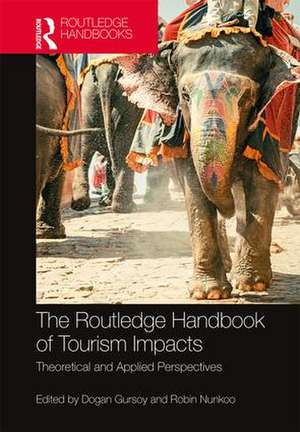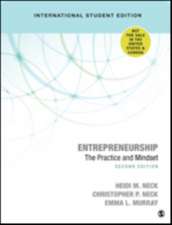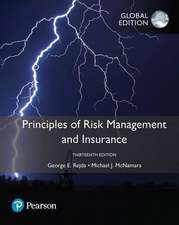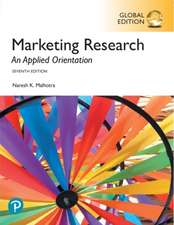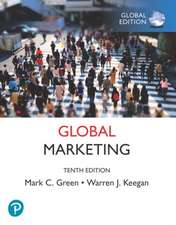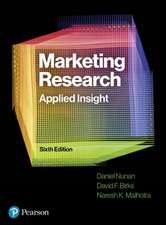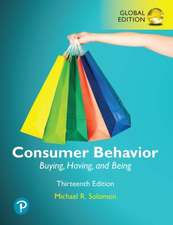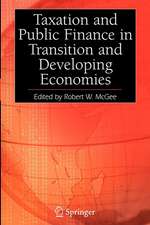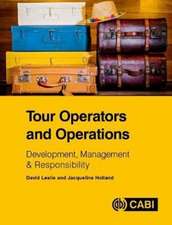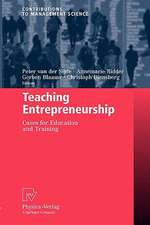The Routledge Handbook of Tourism Impacts: Theoretical and Applied Perspectives
Editat de Dogan Gursoy, Robin Nunkooen Limba Engleză Hardback – 13 mai 2019
This handbook explores and critically examines both positive and negative impacts of tourism development focusing on the past, present and future issues, challenges and trends from a multidisciplinary global perspective. Through a comparative approach involving international case studies, this book explores our understanding of tourism impacts and contributes to the theoretical development on relationships between tourism impacts and community support for tourism development.
This handbook focuses on a variety of geographical locations, drawing from the knowledge and expertise of highly regarded academics from around the world. Specifically, it explores the adoption and implementation of various tourism development and impact management approaches in a wide range of global contexts, while identifying their trends, issues and challenges. It addresses strategies relating to innovation, sustainability and social responsibility, and critically reviews the economic, sociocultural, environmental, political and technological impacts of tourism. The text also identifies future trends and issues, as well as exploring the methods used to study tourism impacts.
Conveying the latest thinking and research, this handbook will be a key reference for students, researchers and academics of tourism, as well as development studies, geography, cultural studies, sustainability and business, encouraging dialogue across disciplinary boundaries and areas of study.
| Toate formatele și edițiile | Preț | Express |
|---|---|---|
| Paperback (1) | 422.04 lei 6-8 săpt. | |
| Taylor & Francis – 29 aug 2022 | 422.04 lei 6-8 săpt. | |
| Hardback (1) | 1220.75 lei 6-8 săpt. | |
| Taylor & Francis – 13 mai 2019 | 1220.75 lei 6-8 săpt. |
Preț: 1220.75 lei
Preț vechi: 1674.58 lei
-27% Nou
233.62€ • 243.00$ • 192.87£
Carte tipărită la comandă
Livrare economică 12-26 aprilie
Specificații
ISBN-10: 1138494968
Pagini: 554
Ilustrații: 4 Halftones, black and white; 38 Tables, black and white; 32 Illustrations, black and white
Dimensiuni: 174 x 246 x 38 mm
Greutate: 1.08 kg
Ediția:1
Editura: Taylor & Francis
Colecția Routledge
Locul publicării:Oxford, United Kingdom
Public țintă
PostgraduateCuprins
Introduction to tourism impacts.
Part I: Tourism impacts
1. Tourism planning and tourism impacts. 2. Tourism and quality of life. 3. Overview of underpinnings of tourism impacts: the case of Lisbon destination. 4. Tourism planning: the United Nations World Tourism Organization INSTO Programme – the example of Raglan, New Zealand. 5. The impacts of tourism on animals. 6. Impacts of elephant tourism in Thailand.
Part II: Economic impacts of tourism
7. Economic impacts of tourism. 8. Tourism and income inequality in Mauritius: an empirical investigation. 9. Local economic development, rural tourism and communities: Southern African perspectives. 10. Tracing the economic impacts of adventure travel. 11. Long-term economic impacts of tourism. 12. The effects of small and medium-sized tourism enterprises on destinations. 13. Economic impact of visitor (trader) harassment on tourist destinations and what tourism leaders can do about it. 14. The extraordinary league of rural women entrepreneurs of Malawi: the socio-economic impacts of tourism in Malawi. 15. The role of tourism in poverty alleviation in Mauritius.
Part III: Sociocultural impacts of tourism
16. Sociocultural impacts of tourism. 17. Social impacts of tourism: a critical literature review on the interrelation between well-being and tourism in the case of seniors. 18. Social psychological effects of tourism: evaluation of the tourist–local people interaction within the context of Allport’s intergroup contact theory. 19. Sociocultural impacts of tourism development on heritage sites. 20. Socioeconomic impacts of tourism on the local community: Nkhata Bay district, Malawi.
Part IV: Environmental impacts of tourism
21. Environmental impacts of tourism. 22. Tourism and the environment. 23. Environmental impact of the ugly face of tourism: pollution and management perspectives. 24. Sensitization of tourists about climate change and its associated impacts on the tourism sector: the case of Mauritius. 25. Sustainable tourism as a catalyst for positive environmental change: the case of LUX* Resorts & Hotels.
Part V: Political impacts of tourism
26. Political impacts of tourism. 27. Tourism performances, government effectiveness and local growth: the Italian cultural heritage perspective. 28. Impacts of corruption on tourism: a stop-and-go period for Brazilian tourism.
Part VI: Technology and tourism impacts
29. Smart tourism ecosystem impacts. 30. The onward march of technology and its impact on the world of tourism. 31. Smart tourism ecosystems’ impacts on tourism destinations. 32. Towards the digital era: adding value through ICT in the tourism industry.
Part VII: Methods used to study tourism impacts 33. A critical review of statistical techniques and applications used to study tourism impacts. 34. A Bayesian modeling approach to assess the moderating effect of gender and nationality on perception of residents towards support of tourism development in the United Arab Emirates. 35. A review of the application of social exchange theory in tourism research.
Index
Notă biografică
Robin Nunkoo is an Associate Professor in the Department of Management, University of Mauritius. He is also a Visiting Senior Research Fellow at the University of Johannesburg, South Africa, and an Adjunct Professor at Griffith University, Australia. He holds a Ph.D. from the University of Waterloo, Canada. He is an economist by academic training, specializing in political economy. His current research draws widely from political science and investigates the interplay among citizens’ trust (distrust) in government (and institutions), power issues in development, and political support for development and government policies. He also researches on corruption in government, voting behaviors of citizens, and political party affiliations in democratic economies, and is interested in citizens’ political support for tourism policies and planning implemented by the government. He has been honored with the Emerging Scholar of Distinction Award 2014 by the International Academy for the Study of Tourism for exceptional contributions to tourism research. He is also the Associate Editor of the Journal of Hospitality Marketing & Management, a Resource Editor for Annals of Tourism Research, and the Regional Editor (Africa) for the Journal of China Tourism Research. He is also an editorial board member of several leading academic journals.
Descriere
This handbook explores and critically examines both positive and negative impacts of tourism development focusing on the past, present and future issues, challenges and trends from a multidisciplinary global perspective. Through a comparative approach involving international case studies, this book explores our understanding of tourism impacts and contributes to the theoretical development on relationships between tourism impacts and community support for tourism development.
This handbook focuses on a variety of geographical locations, drawing from the knowledge and expertise of highly regarded academics from around the world. Specifically, it explores the adoption and implementation of various tourism development and impact management approaches in a wide range of global contexts, while identifying their trends, issues and challenges. It addresses strategies relating to innovation, sustainability and social responsibility, and critically reviews the economic, sociocultural, environmental, political and technological impacts of tourism. The text also identifies future trends and issues, as well as exploring the methods used to study tourism impacts.
Conveying the latest thinking and research, this handbook will be a key reference for students, researchers and academics of tourism, as well as development studies, geography, cultural studies, sustainability and business, encouraging dialogue across disciplinary boundaries and areas of study.
